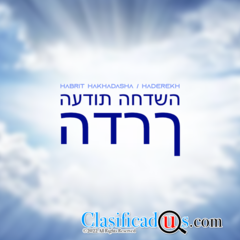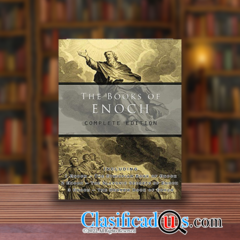Neuro Books
Books of Enoch
Free
Published date: January 7, 2022
Modified date: May 11, 2023
- Location: Online (Internet), Online (Internet), (Online / Internet)
The Book of Enoch (also 1 Enoch;[note 1] Ge'ez: መጽሐፈ ሄኖክ, maṣḥafa hēnok) is an ancient Hebrew apocalyptic religious text, ascribed by tradition to Enoch, the great-grandfather of Noah.[1][2] Enoch contains unique material on the origins of demons and Nephilim, why some angels fell from heaven, an explanation of why the Genesis flood was morally necessary, and prophetic exposition of the thousand-year reign of the Messiah.
The older sections (mainly in the Book of the Watchers) of the text are estimated to date from about 300–200 BC, and the latest part (Book of Parables) probably to 100 BC.
Various Aramaic fragments found in the Dead Sea Scrolls, as well as Koine Greek and Latin fragments, are proof that the Book of Enoch was known by Jews and early Near Eastern Christians. This book was also quoted by some 1st and 2nd century authors as in the Testaments of the Twelve Patriarchs. Authors of the New Testament were also familiar with some content of the story.[4] A short section of 1 Enoch (1:9) is cited in the New Testament Epistle of Jude, Jude 1:14–15, and is attributed there to "Enoch the Seventh from Adam" (1 Enoch 60:8), although this section of 1 Enoch is a midrash on Deuteronomy 33:2. Several copies of the earlier sections of 1 Enoch were preserved among the Dead Sea Scrolls.
It is not part of the biblical canon used by Jews, apart from Beta Israel (Ethiopian Jews). While the Ethiopian Orthodox Tewahedo Church and Eritrean Orthodox Tewahedo Church consider the Book of Enoch as canonical, other Christian groups regard it as non-canonical or non-inspired, but may accept it as having some historical or theological interest.
The older sections (mainly in the Book of the Watchers) of the text are estimated to date from about 300–200 BC, and the latest part (Book of Parables) probably to 100 BC.
Various Aramaic fragments found in the Dead Sea Scrolls, as well as Koine Greek and Latin fragments, are proof that the Book of Enoch was known by Jews and early Near Eastern Christians. This book was also quoted by some 1st and 2nd century authors as in the Testaments of the Twelve Patriarchs. Authors of the New Testament were also familiar with some content of the story.[4] A short section of 1 Enoch (1:9) is cited in the New Testament Epistle of Jude, Jude 1:14–15, and is attributed there to "Enoch the Seventh from Adam" (1 Enoch 60:8), although this section of 1 Enoch is a midrash on Deuteronomy 33:2. Several copies of the earlier sections of 1 Enoch were preserved among the Dead Sea Scrolls.
It is not part of the biblical canon used by Jews, apart from Beta Israel (Ethiopian Jews). While the Ethiopian Orthodox Tewahedo Church and Eritrean Orthodox Tewahedo Church consider the Book of Enoch as canonical, other Christian groups regard it as non-canonical or non-inspired, but may accept it as having some historical or theological interest.
Related listings
-
 Habrit Hakhadasha / HaderekhFreeDigital Books (eBooks) Online (Internet) (Online (Internet)) August 23, 2024The Hebrew Bible translated into Spanish and English. Discover the secrets hidden in translations. Translation provided by Google Translate # Biblia Hebrea traducida al inglés y español Nuevo Testamento
Habrit Hakhadasha / HaderekhFreeDigital Books (eBooks) Online (Internet) (Online (Internet)) August 23, 2024The Hebrew Bible translated into Spanish and English. Discover the secrets hidden in translations. Translation provided by Google Translate # Biblia Hebrea traducida al inglés y español Nuevo Testamento -
 The Game Developer ®7.00 $Digital Books (eBooks) Online (Internet) (Online (Internet)) November 8, 2022The Insane True Story of the Birth of Trafala Games® Now Available in Amazon.com
The Game Developer ®7.00 $Digital Books (eBooks) Online (Internet) (Online (Internet)) November 8, 2022The Insane True Story of the Birth of Trafala Games® Now Available in Amazon.com -
 The Legends of the Jews (Vol. 1-4)FreeDigital Books (eBooks) Online (Internet) (Online (Internet)) January 7, 2022The Legends of the Jews is a chronological compilation by aggadah of hundreds of biblical legends in the Mishnah, Talmud, and Midrash. The compilation is synthesized by Louis Ginzberg, rabbi and Talmudist. The narrative is divided into four main volu...
The Legends of the Jews (Vol. 1-4)FreeDigital Books (eBooks) Online (Internet) (Online (Internet)) January 7, 2022The Legends of the Jews is a chronological compilation by aggadah of hundreds of biblical legends in the Mishnah, Talmud, and Midrash. The compilation is synthesized by Louis Ginzberg, rabbi and Talmudist. The narrative is divided into four main volu...



